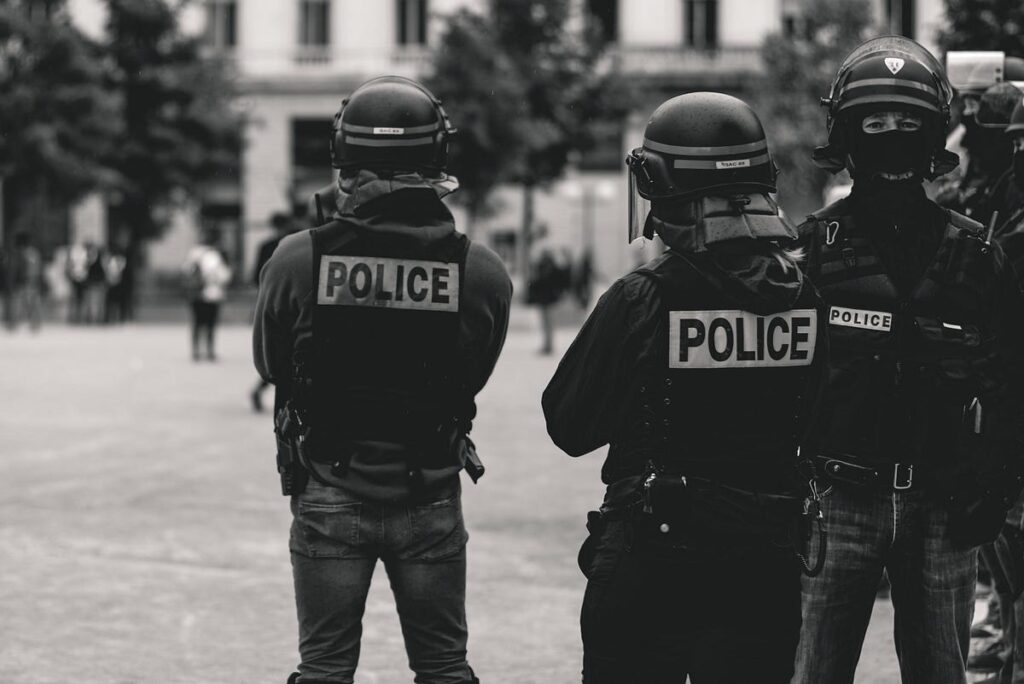The sight of a police officer can evoke a range of emotions in individuals, from respect to apprehension. While most people comply with law enforcement requests, some choose to flee. This behavior, often perceived as suspicious or defiant, stems from complex motivations that require understanding and consideration. This article delves into the reasons why people run from the police, exploring the psychological, legal, and social factors at play. We will examine common scenarios, analyze potential consequences, and discuss strategies for de-escalation to promote safer interactions between law enforcement and the public.
Reasons for Fleeing from Police
Understanding why someone flees from the police is crucial for both law enforcement and the public. It’s important to remember that fleeing doesn’t always indicate guilt or malicious intent. Fear, misunderstanding, past experiences, and even panic can contribute to this behavior.
Fear of Arrest and Warrants
One of the most common reasons people flee from police is the fear of arrest. This fear can be particularly acute if an individual has outstanding warrants for their arrest. The prospect of facing legal consequences, potential jail time, or fines can trigger a flight response as a way to avoid immediate capture.
Even without active warrants, individuals with past criminal convictions may also fear arrest due to the possibility of being re-incarcerated or facing additional charges. This preemptive fear can lead them to flee from police interactions, regardless of the situation’s actual severity.
Suspicion of Criminal Activity

Sometimes, people run from the police because they believe they are suspected of criminal activity. This suspicion might stem from their own actions or simply being in the wrong place at the wrong time. If an individual feels unjustly targeted or believes they are being unfairly scrutinized, they may choose to flee as a way to protect themselves and avoid potential accusations.
It’s important to note that this fear can be exacerbated by existing biases and stereotypes within law enforcement. If individuals perceive police officers as more likely to target them based on their race, ethnicity, or socioeconomic status, they may be more inclined to flee out of self-preservation.
Negative Police Interactions
Past negative experiences with law enforcement can significantly influence an individual’s response to future encounters. If someone has been subjected to harassment, excessive force, or unfair treatment by police in the past, they may develop a deep mistrust and fear of authority figures. This trauma can lead them to flee from any interaction with law enforcement, regardless of its nature.
These negative experiences can create a cycle of fear and avoidance that is difficult to break. Individuals who have been traumatized by police encounters may be less likely to cooperate with officers, leading to further escalation and potential harm.
Panic and Misunderstanding

In some cases, people flee from the police simply out of panic or misunderstanding. A sudden encounter with law enforcement can trigger a fight-or-flight response, causing individuals to react instinctively without fully comprehending the situation.
Misunderstandings can also arise due to language barriers, cultural differences, or lack of clear communication. If someone doesn’t understand what the police are asking or why they are being approached, they may panic and flee out of fear or confusion.
De-escalation Techniques
To address the complex issue of fleeing from police, law enforcement agencies must prioritize de-escalation techniques. These strategies aim to reduce tension and create a safer environment for both officers and civilians.
Active Listening and Clear Communication
Officers should strive to communicate clearly and calmly with individuals, actively listening to their concerns and providing clear explanations for their actions. This open dialogue can help build trust and reduce the likelihood of flight responses.
Non-Threatening Body Language
Maintaining a non-threatening posture and avoiding aggressive gestures can significantly de-escalate situations. Officers should be mindful of their body language and strive to appear approachable and respectful.
Empathy and Understanding
Recognizing that individuals may be experiencing fear, anxiety, or misunderstanding is crucial for effective de-escalation. Officers should approach encounters with empathy and understanding, acknowledging the individual’s perspective and working to build rapport.
Conclusion
Understanding why people flee from the police is essential for fostering safer and more equitable interactions between law enforcement and the public. While fear of arrest, suspicion of criminal activity, negative past experiences, and panic can all contribute to this behavior, de-escalation techniques can help mitigate these risks. By prioritizing clear communication, non-threatening body language, empathy, and active listening, law enforcement agencies can create a more positive and trusting environment for everyone involved.



